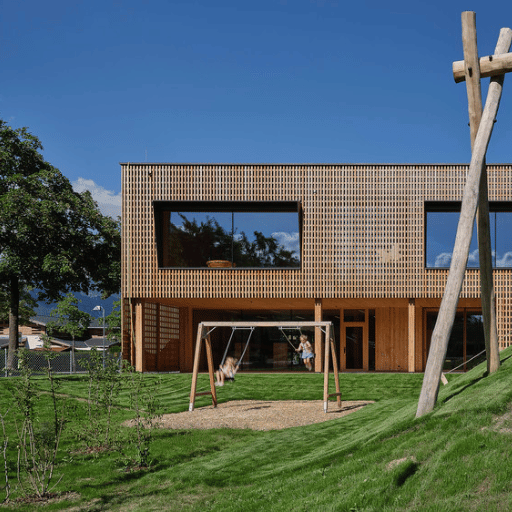Sportpädagoge/Sportpädagogin (Physical Education Teacher) Role Interview (Kindergarten)
In this article, we’ve put together all the information you need to run an interview for a Sportpädagoge/Sportpädagogin (Physical Education Teacher) in a Kindergarten in Austria. We’ve included a Sportpädagoge/Sportpädagogin (Physical Education Teacher) job description, job requirements (useful for adding to job advertisements), common job interview questions to ask someone applying for your advertised Sportpädagoge/Sportpädagogin (Physical Education Teacher) role, follow-up questions to ask your potential new hire and excellent answers that candidates give to Sportpädagoge/Sportpädagogin (Physical Education Teacher) job interview questions. We’ll also look at what happens in an interview for a Sportpädagoge/Sportpädagogin (Physical Education Teacher) and the hiring process after the interview.
Sportpädagoge/Sportpädagogin (Physical Education Teacher) Role Job Description, Requirements, Questions
Role Job Description:
The role of a Sportpädagoge/Sportpädagogin in a Kindergarten in Austria is to engage children in physical activities and games, promoting physical development and coordination. This role is crucial in ensuring that children develop a love for physical activity from a young age, which can have long-lasting benefits for their overall health and well-being. The Sportpädagoge/Sportpädagogin is responsible for planning and implementing age-appropriate physical education lessons, organizing sports events and competitions, and providing guidance and support to children in developing their motor skills.
Role Job Requirements:
To be successful in this role, a Sportpädagoge/Sportpädagogin should have a strong background in physical education and a passion for working with children. A bachelor’s degree in physical education or a related field is typically required, along with relevant experience working with young children. Excellent communication and interpersonal skills are essential, as the Sportpädagoge/Sportpädagogin will be working closely with both children and their parents. Additionally, the ability to create a safe and inclusive environment for all children is crucial.
Role Job Interview Questions:
1. Can you tell us about your experience working with young children in a physical education setting?
2. How do you ensure that physical activities are inclusive and accessible to all children?
3. How do you plan and organize physical education lessons for different age groups?
4. Can you provide an example of a game or activity that you have used to promote physical development and coordination in children?
5. How do you handle challenging behavior during physical activities?
Follow-up Questions:
1. Can you share any strategies you have used to motivate children who may be less interested in physical activities?
2. How do you assess the progress and development of children in physical education?
3. Can you provide an example of a time when you had to adapt your lesson plan to accommodate a child with special needs?
Examples of excellent answers from candidates:
1. “During my previous role as a physical education teacher in an elementary school, I worked with children aged 6-12. I designed and implemented engaging lessons that focused on developing their motor skills, coordination, and teamwork. I also organized regular sports events and competitions to encourage friendly competition and promote a sense of achievement among the children.”
2. “In order to ensure that physical activities are inclusive, I always provide modifications and adaptations for children with different abilities. For example, if we are playing a game of soccer, I may introduce a softer ball or allow children to use their hands if they have difficulty using their feet. I also encourage teamwork and cooperation, emphasizing that everyone’s contribution is valuable.”
3. “When planning physical education lessons for different age groups, I take into consideration their developmental stage and abilities. For younger children, I focus on basic movements and coordination skills, while for older children, I introduce more complex games and activities that challenge their physical abilities. I also ensure that the lessons are fun and engaging, incorporating elements of play and creativity.”
4. “One game that I have found to be effective in promoting physical development and coordination is ‘Simon Says.’ This game requires children to listen and follow instructions while performing various physical movements. It helps improve their listening skills, coordination, and body awareness. I always make sure to include modifications for children with different abilities, so everyone can participate and feel successful.”
5. “When faced with challenging behavior during physical activities, I believe in addressing the underlying cause rather than simply punishing the child. I take a proactive approach by setting clear expectations and rules at the beginning of each activity. If a child is acting out, I try to understand their perspective and provide guidance and support. I may offer alternative activities or provide additional encouragement to help redirect their behavior in a positive way.”
Sportpädagoge/Sportpädagogin (Physical Education Teacher) (Austria) Interview Schedule
To conduct a comprehensive one-hour interview for a Sportpädagoge/Sportpädagogin (Physical Education Teacher) role in a Kindergarten in Austria, consider the following schedule:
- Introduction and overview of the role (5 minutes)
- Candidate’s experience and skills assessment (15 minutes)
- Job-specific questions (25 minutes)
- Follow-up questions and clarification (10 minutes)
- Candidate’s questions about the role and organization (5 minutes)
Best Practices for Sportpädagoge/Sportpädagogin (Physical Education Teacher) Candidate Communication
After the interview for your Sportpädagoge/Sportpädagogin (Physical Education Teacher) role (Austria), it is crucial to keep the candidate informed about the hiring process. Best practices include:
- Sending a personalized thank-you email to the candidate within 24 hours
- Provide a timeline for the Sportpädagoge/Sportpädagogin (Physical Education Teacher) hiring process and when they can expect to hear back
- Regularly updating the candidate on their Sportpädagoge/Sportpädagogin (Physical Education Teacher) job application status, even if there are delays
- Offering constructive feedback to unsuccessful candidates to help them improve for future opportunities at your Kindergarten
- Maintaining open and transparent communication throughout the entire process to ensure a positive candidate experience
Ready to start your hiring process?
Click the button above to get our simple-to-use Applicant Tracking System (ATS) that can be used to manage your hiring process.

